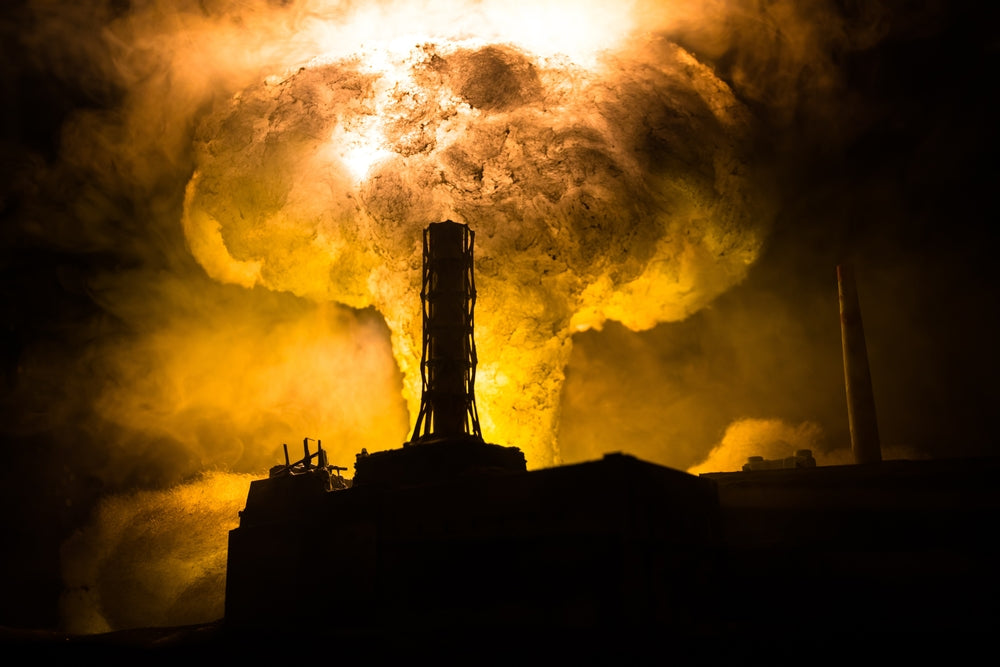Free U.S. Shipping On Orders Over $150

The 5 Biggest Disasters Caused by Sleep Deprivation
Posted on
We’ve all experienced sleep deprivation, but have you ever been sleep deprived enough to cause a nuclear reactor meltdown or a catastrophic oil spill costing over two billion dollars?
Here are some of the biggest disasters in which lack of sleep was a contributing factor.
1. 1999 Crash of American Airlines Flight 1420
On 1st June 1999, the American Airlines Flight 1420 overran the runway after landing and crashed into a structure, leading to the death of 9 people and causing serious injuries to 45 passengers and crew members.
The main cause of the accident was the crew attempting a landing during severe thunderstorms. Crucially, they made a series of errors leading up to the landing that greatly contributed to the crash.
A report by the National Transport Safety Board (NTSB) concluded that fatigue was a factor in the accident. The captain had been awake for 16 hours. The fatigue and sleep deprivation led to poor decision making and lapse of judgment.
2. Chernobyl Nuclear Plant Meltdown
The Chernobyl nuclear plant meltdown is the worst nuclear disaster in history. It is also the most expensive disaster of any kind to have ever happened.
In addition to being inadequately trained, the personnel at the nuclear plant were also tired and sleep-deprived from irregular and long working schedules. This contributed to the critical mistakes that led to the accident.
3. Three Mile Island Nuclear Meltdown
The Three Mile Island disaster is another accident in which fatigue and sleep deprivation may have played a role. As with the Chernobyl disaster, a series of mistakes by tired workers combined with equipment failure led to the disaster.
While the Three Mile Island nuclear accident did not cause any deaths or grave injuries, it was expensive to clean up (over $2B in today’s money) and significantly slowed down development of nuclear power.
4. Exxon Valdez Oil Spill
The Exxon Valdez oil spill of 1989 is the second largest to occur in US waters. It was a major environmental catastrophe with effects that last till today. Hundreds of thousands of marine animals were killed and habitats destroyed, with some of them expected to take decades to recover.
The oil spill also had negative economic consequences on local food supply, tourism and other areas.
The Valdez oil spill occurred when the tanker struck a reef off the coast of Alaska and spilled over 10 million gallons of oil.
At the time of the accident, the Captain was asleep. He had given over control to the third mate, who was sleep deprived. This may have contributed to his poor judgment and failure to notice danger sooner.
5. 2003 Staten Island Ferry crash
On October 15 2003, the Andrew J. Barberi ferry crashed into a concrete pier, killing 11 people and leaving 70 seriously injured.
At the time of the crash, the assistant captain was in control. Based on later investigations, it is likely that he was either asleep or unconscious when the ferry ran full speed into the pier.
According to NTSB, the assistant captain had a habit of working late past the end of his shift and regularly got less than the recommended 7-8 hours of sleep. The fatigue, sleep deprivation and meds he was on may have affected his focus, leading him to lose control of the ferry.
Other Effects of Sleep Deprivation
The above are just a few of the disasters that ended up in the news. But everyday, sleep deprivation is responsible for many more accidents and tragedies.
Take road accidents, for instance. The WHO estimates that as many as 30% of road accidents globally can be attributed to sleepy drivers. In the United States, 328,000 accidents each year are due to drowsiness, with thousands of deaths resulting from these crashes.
The problem of fatigue and sleep deprivation also extends into the workplace. It’s estimated that 13% of work injuries are due to sleepiness.
How to Avoid Sleep Deprivation
Poor sleep is literally a life and death matter. Driving or working while sleepy endangers your life and that of other people, not to mention the many health consequences associated with lack of sleep.
Make sure you get between 7 and 9 hours each night.
Having a consistent bedtime routine, making your bed more comfortable, working out during the day and avoiding alcohol and caffeine in the afternoon and evening are some of the ways to help you sleep better and longer.
Even a small change like switching to better quality bed sheets such as the Hercleon Jax sheets can greatly improve your sleep.
Quick links
Contact
6063 Hudson Road #160
Woodbury, MN 55125
Yo@hercLeon.com
Leave a comment: